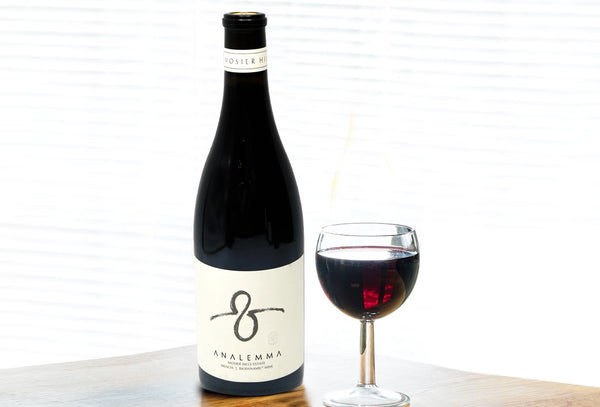What is Organic Wine? Everything You Should Know

Are there reasons to choose organically-produced wines over others that are not? What does “organic” mean when applied to wine? Are natural wines organic? Does organic wine taste better? How do I know if a wine is organic?
The momentum of what I call “eco-friendly wine” in the market has been substantial over the last decade. Organic wine forms a sub-set of the entire movement, but it is critically important. Certified organic winegrowing, and its cousin, biodynamics, are the roots of current trends such as natural wine, regenerative viticulture, and even vegan wine. In Europe, entire wine appellations or quality categories have turned organic, like Penedes and Cava in Spain. The tide has turned even in the somewhat stuffy wine areas like Bordeaux, in France. In California wine county, organic production is a stalwart.
At the outset let me define organic wine. Essentially, it means producing wine without synthetic chemical inputs into the winegrowing process, including fertilizers, pesticides, and herbicides, but also extending to chemicals used in winemaking (like equipment sanitizers and wine additives). Certifying organization exists to ensure such chemical products are not used, including the USDA, and you will always see logos or certification statements on wine labels. In the US, the USDA can certify other private organizations to carry out certification.
There are two or three major subsets of “organic wine” you will find at an online wine store like Bottle Barn. First, there is organic wine grape cultivation. This means that the grapes going into the wine were 100% certified organically grown, which only happens after a three-to-five-year transition period, allowing soil and plant material to lose any trace of previous chemical applications. Second, there is 100% organic wine, which means that not only were the grapes grown organically, but also all processes at the winery to make the wine were certified organic, including additives. Even levels for some natural materials, like sulfites, have limits under such organic wine certification. Finally, there’s certified biodynamic wines, which are organically-produced but also have additional requirements from biodynamic certifying agencies, such as Demeter.
This brief introduction still leaves a lot of questions to answer.
Is Organic Wine Better Than Non-Organic Wine?
This depends on your perspective, but, generally, yes. Two major studies concluded that there is a significant difference in the wine critic scores that wines from organically-cultivated grapes received versus wines made from non-organically grown grapes. Master of Wine Pedro Ballesteros has said he finds better aromas in organic wines. Of course, many factors go into winemaking, so it’s hard to say that every organic wine will taste and smell better than a non-organic counterpart, but it’s now subject to some serious evidence.
The other thing about organic wines being better is that organic practices favor environmental health and long-term sustainability. Wineries that have initiated practices to combat climate change often follow organic strictures. Cutting out the use of chemical fertilizers, fungicides, and pesticides and instead incorporating natural fertilizers (compost), natural fungicides, etc., and improving soil CO2 sequestration in the topsoil through practices like cover crops and green manures helps reduce harmful emissions. Organic wine is better for the earth.
Does Organic Wine Differ from Natural Wine?
Natural wine has formal, government-back definition in France and a few other European nations. As wine expert Alder Yarrow notes, “natural wines and pet-nat wines will have to be hand-picked, fermented with native yeasts, and be organically certified.” However, in the rest of the word, the phrase remains undefined and unregulated, which is part of the problem: there is no consistent definition for it. The basic idea is no additives to the wine or during grape cultivation, resulting in a totally “natural” fermented product. This also usually means no addition of sulfites.
Natural wine developed somewhat of a bad reputation in its early years, perhaps because of overzealous winemakers who didn’t pay heed to long-established wisdom about how to make wine that will last, in good condition, for more than a few months.
So, in most cases, natural wine is made from organically-cultivated grapes, but in countries with no regulation, this cannot be assured.
Does Organic Wine Have Sulfites and Are They Bad?
Sulfites are a natural, not a synthetic, chemical compound. They occur naturally in wine, in fact. But having extra sulfites helps prevent spoilage and browning. Organic wines can almost always have some sulfites, however, unlike non-organic wines, there is an established limit that is lower than in non-certified organic wines. The USDA National Organic Program, for example, regulates that wines labeled as organic wine can’t have added sulfites, and in any event, the naturally-occurring sulfites have to be under 10 ppm. Wines bearing the phrase “Made with Organic Grapes” and biodynamic wine (that is not otherwise organic certified) can have ten times more sulfites added to the wine, whereas non-organic wines can contain up to 350 ppm added sulfites. In any event, as writer Pam Strayer recently said, “recent research suggests that red wine headaches and asthmatics’ allergic reactions come from histamines, tannins, and alcohol and not from sulfites.”
Where Can I Buy Organic Wine in the USA?
At the best California wine store it’s so easy to order wine delivery, you can try different kinds of organic wine. On the website, go “Featured,” then the category for “Green Wines” where you can select “Biodynamic” or “Organically Grown.” Remember, certified biodynamic wine is also organically cultivated.
I have selected a few to sample:
An intriguing selection is the 2019 Analemma Mosier Hills Estate Mencia, which is certified biodynamic and made from a grape little seen outside of northern Spain. Mencia wines from cool climates, like this one from Oregon, remind me of Pinot or Gamay Noir. The aptly named 2018 Eco Terreno Cuvee Acero Sauvignon Blanc is from biodynamic viticulture in Bottle Barn’s home, Sonoma County, and is also a certified organic wine! The winemaker highlights its aromas blending fruit with herbal notes: papaya, sweet lime, and pear with a hint of lemon verbena.
If you want some organic bubbly, try the Champagne Lelarge-Pugeot Gueux Extra Brut, which not only comes from biodynamically farmed grapes but is also vegan-friendly, without use of fining agents, and was spontaneously fermented using indigenous yeasts in Champagne—a fantastic example of French winegrowing.
If you liked learning the basics of organic wine, read Bottle Barn’s other informative wine articles.


















Leave a comment